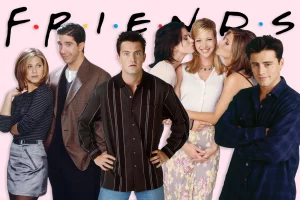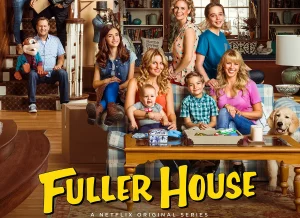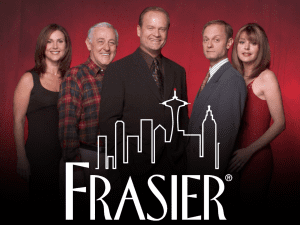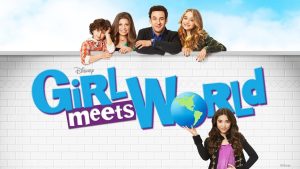Introduction
Nostalgia has always been a powerful emotion, capable of transporting individuals back to simpler, more carefree times. In recent years, this sentiment has played a pivotal role in shaping the entertainment industry, particularly in the realm of reboots of classic shows and movies. This article delves into the phenomenon of nostalgia-driven reboots, exploring the reasons behind their popularity, the impact on audiences and the industry, and the challenges and opportunities they present.
The Power of Nostalgia

Nostalgia, derived from the Greek words nostos (homecoming) and algos (pain), is a complex emotion that combines elements of happiness and longing. It often emerges during times of change or uncertainty, serving as a comforting reminder of the past. For many, nostalgic memories are tied to the media they consumed during their formative years, such as TV shows, movies, and music.
The Rise of Nostalgia Reboots

The trend of rebooting classic shows and movies can be traced back to the early 2000s, but it has gained significant momentum in the past decade. Several factors have contributed to this surge:
- Technological Advancements: The advent of streaming platforms has revolutionized the way content is consumed. Services like Netflix, Hulu, and Disney+ have vast libraries of classic content, making it easier for audiences to revisit old favorites. These platforms also provide a convenient avenue for launching reboots.
- Market Demand: There is a growing demand for content that evokes a sense of nostalgia. As millennials and Gen Xers become the primary consumers of media, their desire to reconnect with their past has driven the popularity of reboots.
- Proven Success: Reboots often come with a built-in fan base, reducing the risk for studios and networks. Successful reboots like Fuller House, The X-Files, and Star Wars: The Force Awakens have demonstrated the financial viability of tapping into nostalgic sentiments.
The Impact on Audiences

Nostalgia-driven reboots offer several benefits to audiences:
- Emotional Connection: Reboots allow viewers to reconnect with beloved characters and storylines, providing a sense of continuity and comfort. This emotional connection can be especially powerful during times of personal or societal upheaval.
- Intergenerational Bonding: Reboots provide an opportunity for different generations to share and enjoy the same content. Parents can introduce their children to the shows and movies they loved growing up, fostering a sense of shared cultural heritage.
- Modern Relevance: Many reboots update the original content to reflect contemporary social and cultural issues. This allows classic stories to remain relevant and resonate with new audiences.
The Impact on the Industry

The trend of nostalgia reboots has had a significant impact on the entertainment industry:
- Revenue Generation: Reboots can be lucrative for studios and networks, as they attract both old fans and new viewers. Merchandise, syndication deals, and streaming rights further contribute to the financial success of these projects.
- Creative Opportunities: Reboots provide creative opportunities for writers, directors, and actors to reinterpret and expand upon existing stories. This can lead to fresh perspectives and innovative storytelling.
- Challenges and Criticisms: Despite their popularity, reboots are not without challenges. Critics argue that the reliance on nostalgia stifles originality and creativity in the industry. There is also the risk of disappointing fans if the reboot fails to capture the essence of the original.
Successful Nostalgia Reboots

Several reboots have successfully tapped into nostalgia while offering something new:
- Stranger Things: While not a reboot, this series is heavily influenced by 1980s pop culture, drawing on the nostalgia of that era. Its success demonstrates the appeal of nostalgic elements in new content.
- Cobra Kai: This sequel series to The Karate Kid movies has been praised for its balance of nostalgia and modern storytelling. It revisits familiar characters while introducing new ones, appealing to both old and new fans.
- DuckTales: The reboot of this beloved animated series has been well-received for its updated animation style and engaging storylines. It retains the charm of the original while appealing to a new generation of viewers.
The Future of Nostalgia Reboots

As long as there is a desire to reconnect with the past, nostalgia-driven reboots are likely to remain a staple of the entertainment industry. However, the key to their continued success lies in striking a balance between honoring the original content and offering something fresh and relevant.
Conclusion
In conclusion, nostalgia is a powerful force driving the reboot of classic shows and movies. It offers emotional comfort, fosters inter generational bonding, and provides creative opportunities for the industry. While there are challenges and criticisms, the enduring appeal of nostalgia ensures that reboots will continue to captivate audiences for years to come.
Nostalgia’s influence on Hollywood reboots shows no signs of slowing down. The emotional connection people have with past shows and films offers a compelling reason for studios to continue mining the past for new content. However, the most successful reboots are those that honor the original while pushing the story and characters into new, relevant directions. As long as audiences continue to find comfort and joy in revisiting familiar worlds, the nostalgia-driven reboot phenomenon will remain a staple of modern entertainment.












